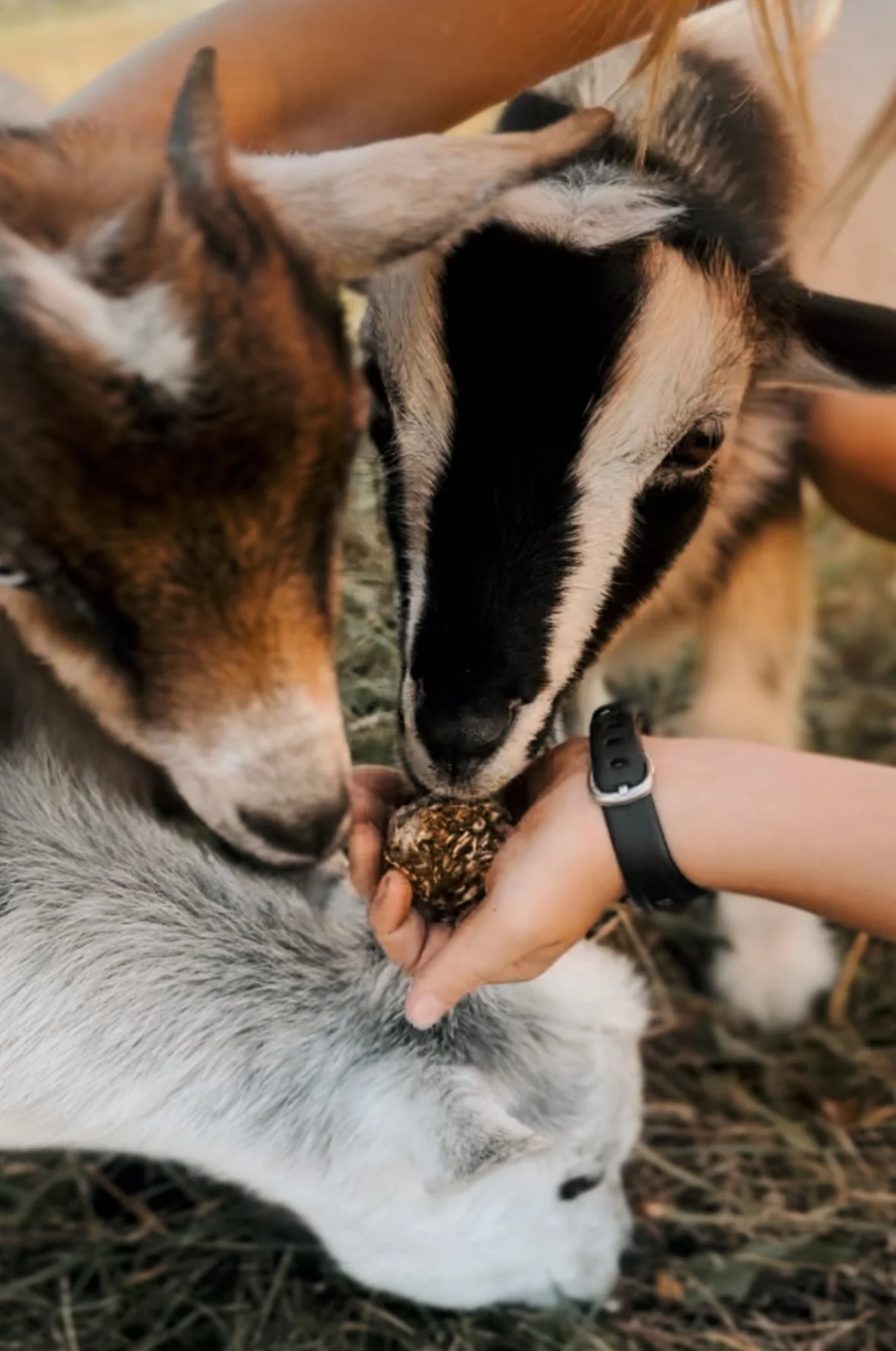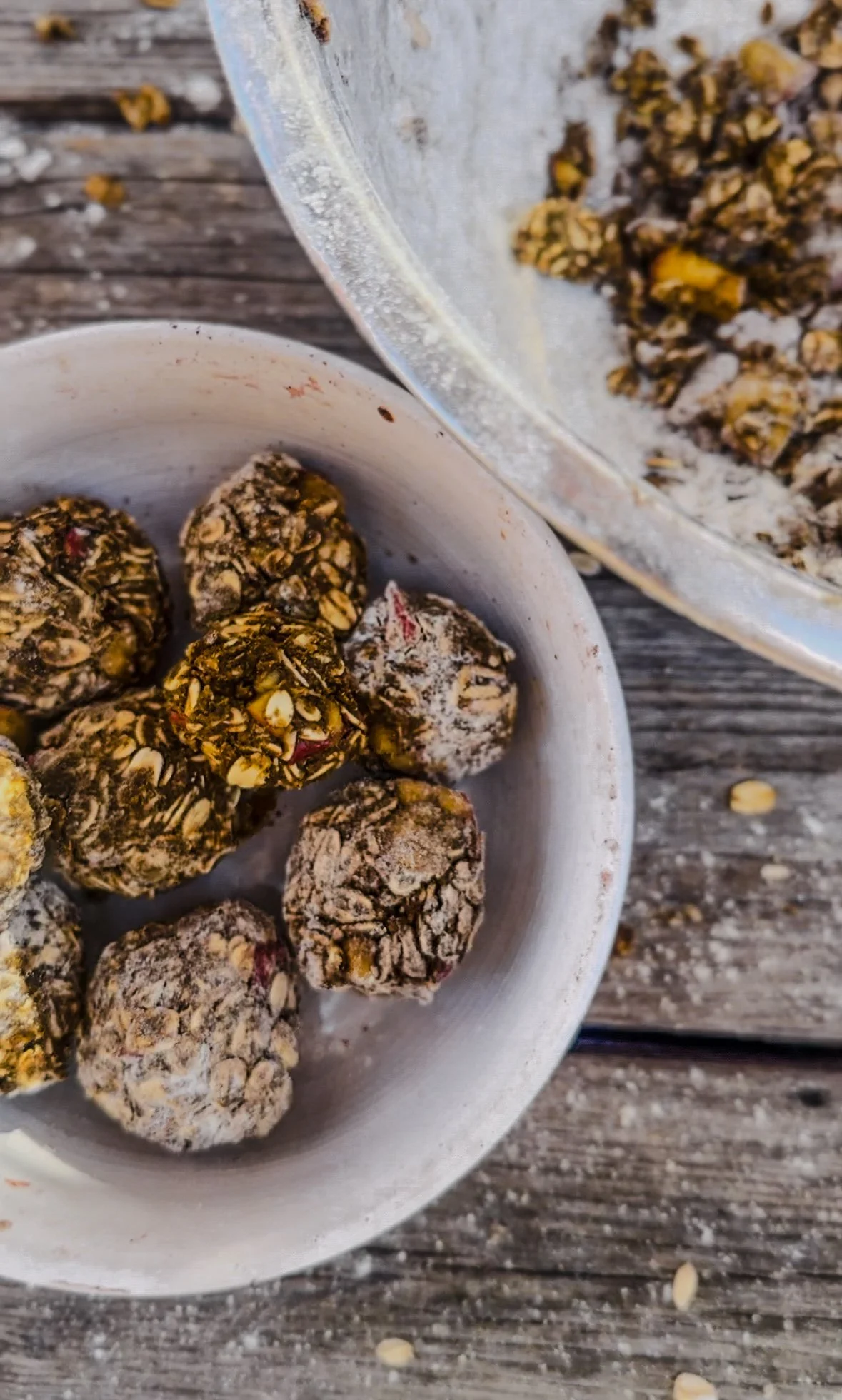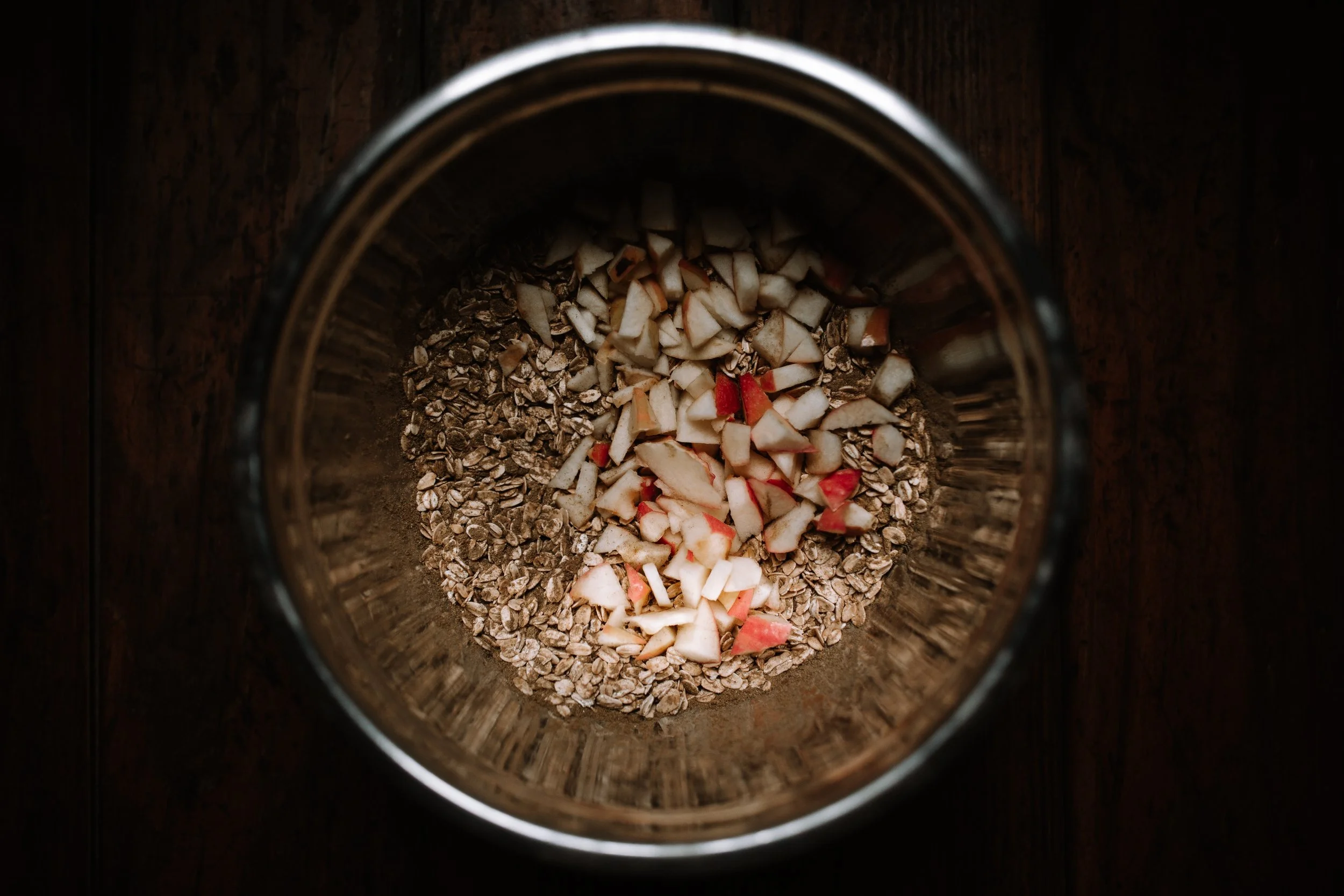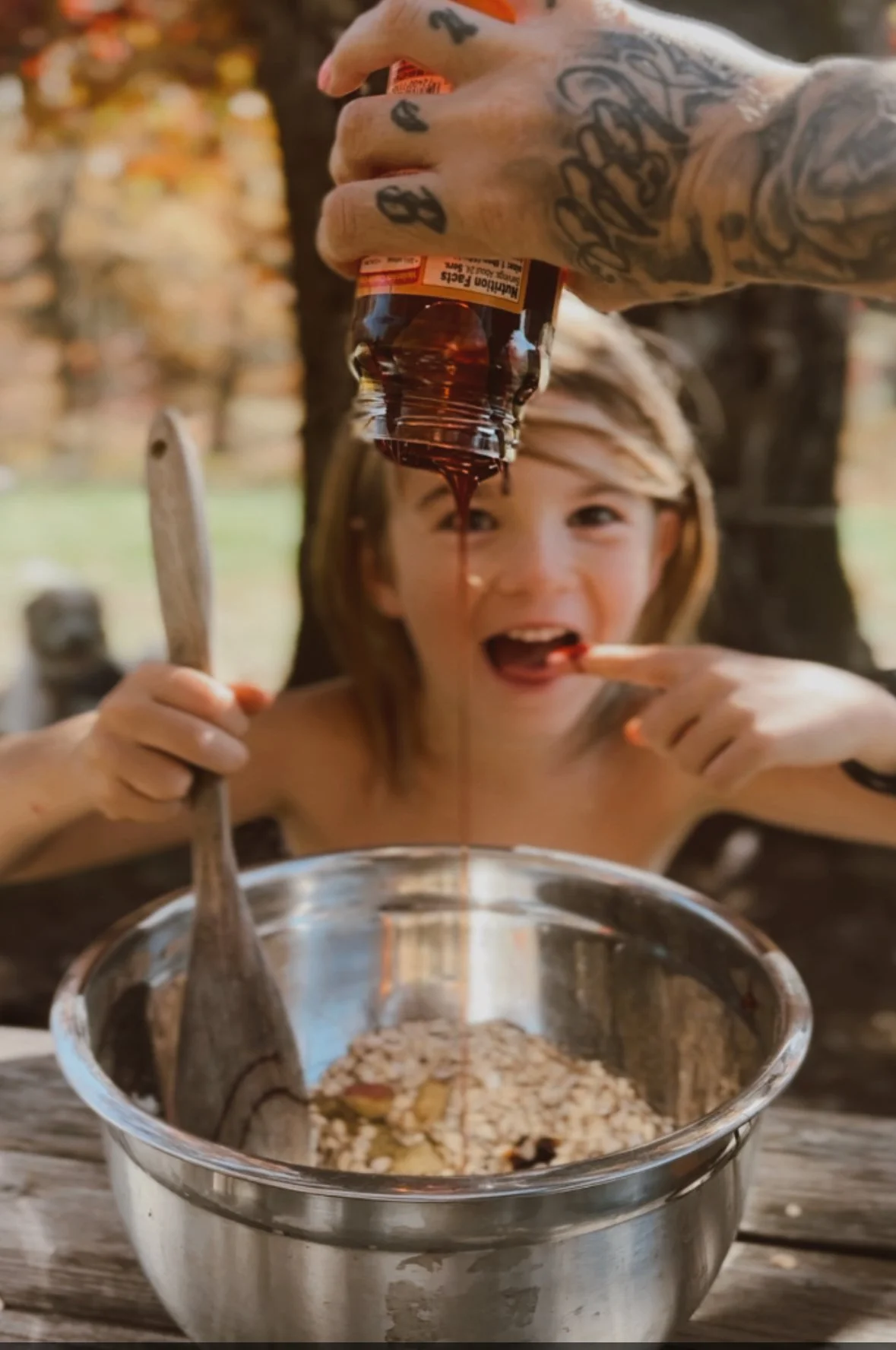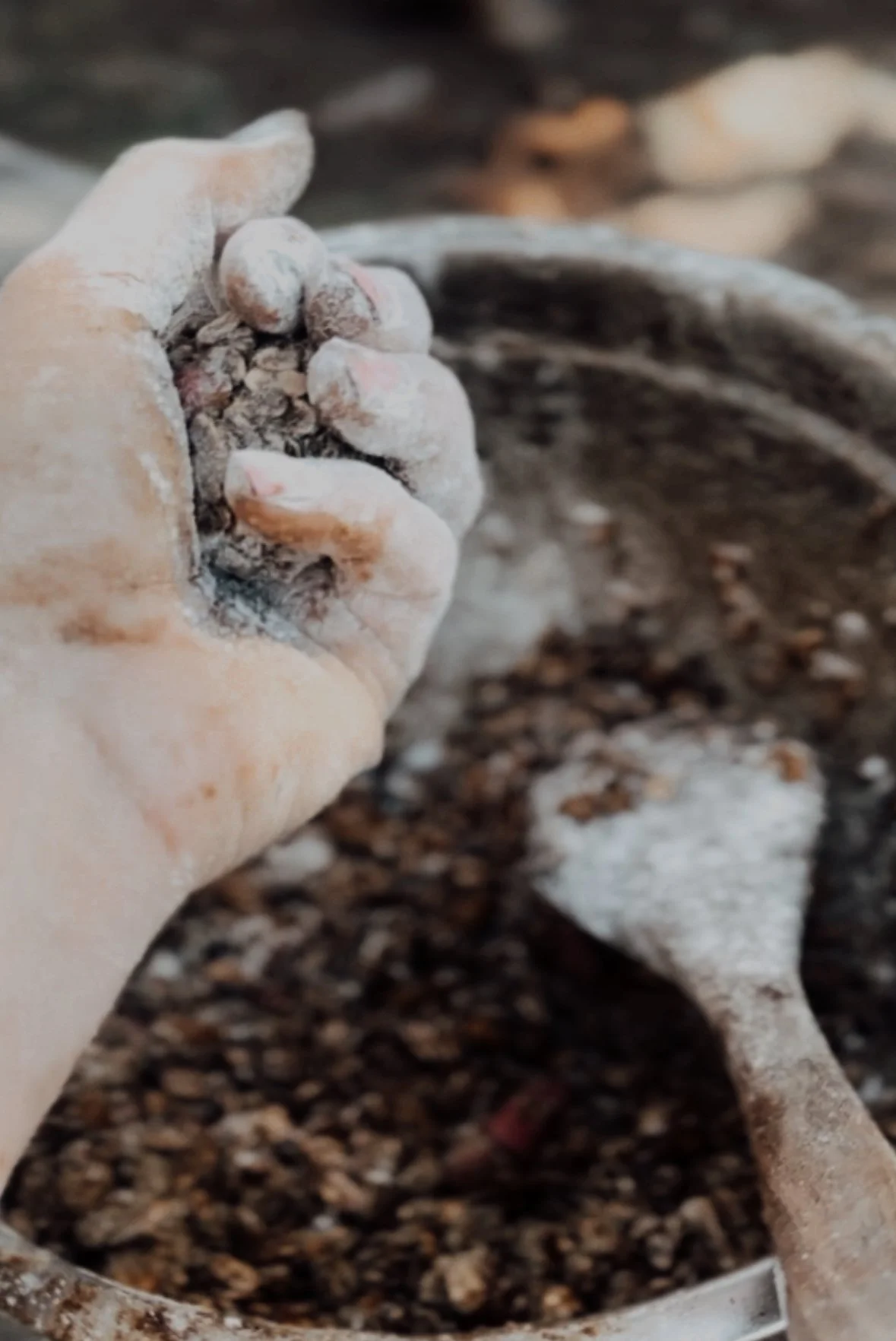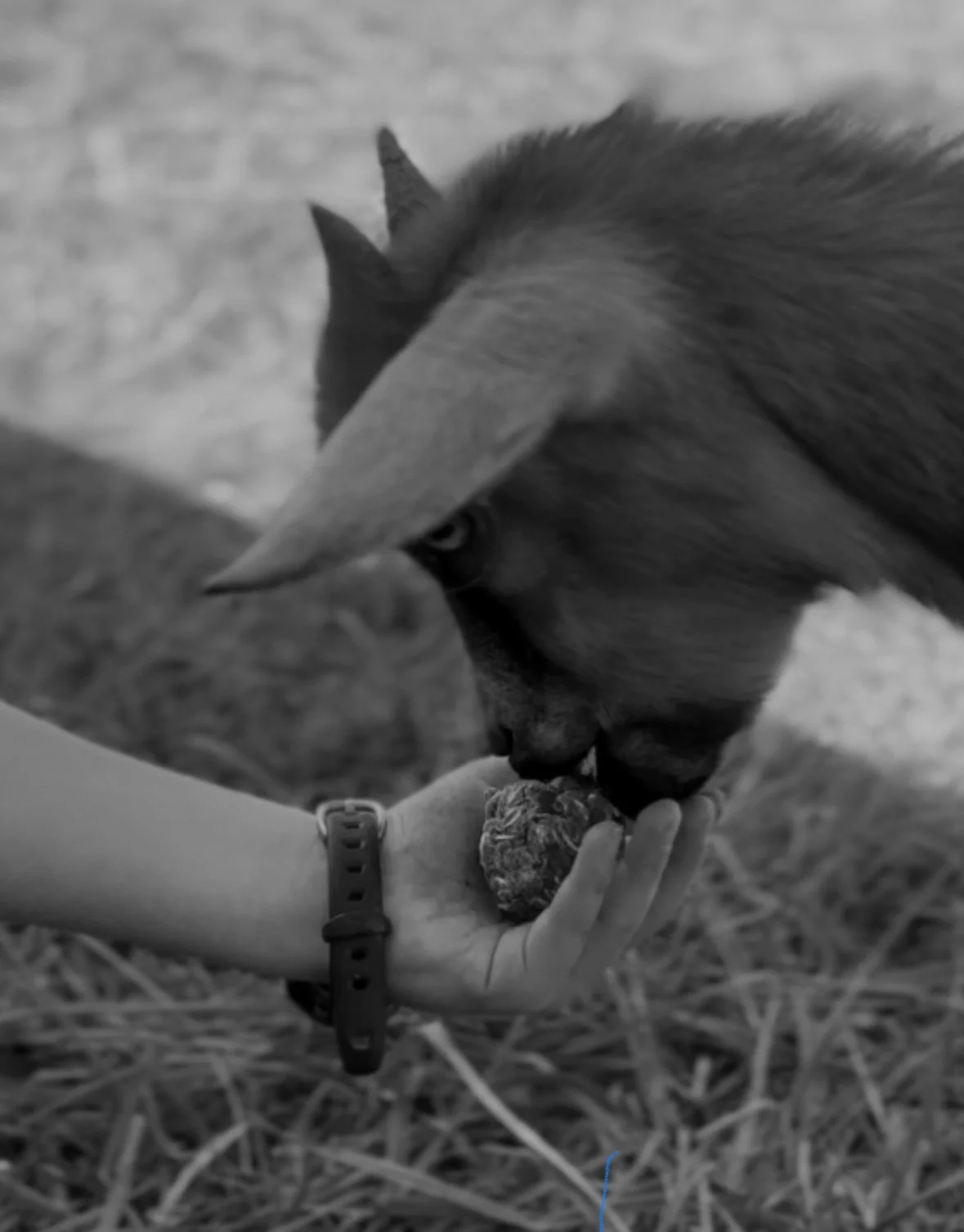Herbal Treats (for goats, chickens and ducks)
I love making treats for the animals here versus purchasing at the feed stores. I have 100% control over the ingredients and ingredient sources. I can control whether or not they are organic, sprouted and I can also add in my own herbs should I choose to make them dosage balls for keeping parasite loads low. Regardless, I typically am adding in herbs or subtracting them depending on my intention and purpose. Herbs and essential oils are a very undervalued or at least underestimated tool in raising livestock. There are some herbs that are serious potent powerhouses when it comes to expelling parasites (cue wormwood and black walnut) alongside common yet highly effective oils (think Oregano, Frankincense and Eucalyptus) that if done right, you really don’t need to reach for the chemical stuff - and no, I’m not talking about red pepper flakes. SO MANY PEOPLE message me dumbfounded that their poultry contracted illnesses with a parasite infestation as a root cause, all because they were adding red pepper flakes to their feed. Red pepper is great for a preventative measure, but in order to keep parasite load down, you have to use a combination of both expectorant herbs and soothing + immune boosting herbs and rotate in and out of them! Confused? Don’t worry, keep reading.
WHY HERBS AND OILS?
Our first medicines were originally inspired by plants. Once you have unearthed the information of the plant world as it pertains to healing the body (both ourselves and animals alike) you’ll likely never bother to reach for conventional over the counter medication. For almost every ailment there is a plant that helps to repair, treat and prevent. I personally will always reach for natural remedies for my animals for a myriad of reasons.
I aim to keep things organic here for compostable animal waste, gmo, pesticide, herbiside, and chemical free meat for myself and all others who purchase animal bi product from me. It’s also a personal choice that I want my animal to be as if wild, untouched by humanity, however better.
You have a withdrawal time for butchering and milking which tells me, if they don’t want it in MY system, why would I give it to my animals ?
Creating antibiotic and chemical resistant strains of parasites and other illnesses by common use for preventing and treating. This is actually a thing. Where my previous residence was in California, we had strains of parasites that were resistant to the Safeguard goat dewormer. You can check with your local farm vet to find out on resistant strains in your area. Just be prepared for them to attempt to debunk your herbal approach with claims of farse because folks who lack the knowledge on implementation get themselves into a bit of an infestation on their farm.
I won’t be covering oils in this post since they’re not used in the treats, but if you’d like a more in-depth article on natural deworming using herbs and an essential oil drench, comment below your interest and I’ll throw an article up!
WHAT HERBS SHOULD I USE?
Here is a personal list of herbs I use and that can be crossed refferenced online as great anti parasitic herb, immune boosting etc. I love to get mine dried as its easier to handle and has a more stable shelf life. I also keep it refrigerated.
Wormwood
Black walnut
Clove (don’t give clove to pregnant animals)
Neem
Oregano
I find it important to note here that livestock will ALWAYS HAVE PARASITES. Yes, hate to break it to you but they live outside and eat on land that is being used as a bathroom by other living animals. Folks have complained that they take their farm animals to the vet for “egg counts” only to find that the numbers fluctuate instead of disappearing altogether. They are designed to live outside and thus their immune system is capable of dealing with worm loads- HOWEVER, it is up to the caretakers to ensure the worm load stays as low as possible, to keep animals thriving. Some species will be more susceptible than others. Grazers like cattle and sheep eat from the ground and have a more evolved immunity vs goats who are browsers (only eating the upper, choice pieces of plants) that will need a bit more maintenance.
HOW TO MAKE THE TREATS
Ingredients
Sprouted Organic Oats ( I use “farmers we know”)
Dried organic herbs of choice. (I only use wormwood 1-2ce a month as it is very potent and can cause intestinal upset if over done.
Molases or Organic PeanutButter
Apples (if you want)
Flour (for your hands)
INSTRUCTIONS
Start by adding all of your dry ingredients to a mixing bowl along with your apple. Make sure your apple is diced as larger pieces will make it harder for the treats to stay formed in a ball.
Add your molasses or nut butter a bit at a time. This part is important. If you add to much liquid you end up having to continually compensate by adding more dried ingredients which can end up costing you (herbs are not cheap!) Add about a tablespoon at a time and mix.
Use your hands! I know some wont like this but, this is the best way I have found to gauge the ratio of liquid to dry.
When I find that the mixture is able to be mostly malleable, I dip my hands in a bowl of flour and scoop some up. The balls can’t be to large or they have a harder time staying together. Instead of rolling, squeeze and form as if you are working with clay. Re-dip your hands in the flour if necessary. You’ll noticed they become nice and powdered by the flour and your ball will be smooth and ready to be placed aside.
Repeat till all mixture is gone.
I wish I could add a video for you guys to really get an understanding of the process, unfortunately my lovely hosting service would like to charge me double in order for me to have “minutes” added. If you head over to my instagram acound (@thewildwoven) there is a reel I have put together that shows a bit of the process behind it all.
As with all things, this could take a couple times to get right. If your balls wont form I would say its from being to wet. Try flouring your hands and if that fails you’ll have to add a bit more dry ingredients. If you aren’t doing herbals and just want to make treats you can substitute the dried herbs for blended oats ( like homemade oat flour).
Comment down below for trouble shooting

